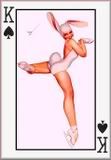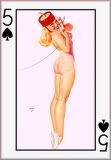He ceases to be the most popular leader in the democratic world, and instead morphs into "a grotesque dictator", "like Hitler, Stalin or Mao".
In his presidency, the proportion of Venezuela's GDP in the private sector has actually increased
Published: 11 December 2006
After the landslide victory comes the landslide of lies. Last week, Hugo Chavez was re-elected as President of Venezuela with 63 per cent of the vote - in an election declared "totally free and fair" by the international legal monitors, in a country where almost all of the media militantly opposes him.
I know the reason why. Her name is Maria Gonzalez. She is a lined, stooped 60 year-old grandmother I stumbled across last year in Barrio Neuva Tacagua, a fetid slum made of tin and mud in the high hills around Caracas. Maria grew up in a Venezuela that was dripping in oil wealth - but she never went to school and she never saw a doctor, because the country's petro-profits surged only into the bank accounts of the country's 25 richest families. Like the vast majority of Venezuelans, she was left to live and die in makeshift rust-and-cardboard shacks.
The day I met her, Maria wrote her name - in shaky handwriting, on a blackboard - for the first time in her life. Since Hugo Chavez was first elected, in another free and open election in 1998, Maria's world has begun to change. The new President began to use the country's oil wealth to build clinics where Maria could be treated free of charge, to subsidise food prices for the 70 per cent of Venezuelans who, like her, live in grinding, binding poverty, and to establish mass literacy programmes to teach his country - and a million Marias - how to read.
Chavez is using his petro-dollars to carry out the will of the people - to lift them out of their slums
Published: 11 December 2006
After the landslide victory comes the landslide of lies. Last week, Hugo Chavez was re-elected as President of Venezuela with 63 per cent of the vote - in an election declared "totally free and fair" by the international legal monitors, in a country where almost all of the media militantly opposes him.
I know the reason why. Her name is Maria Gonzalez. She is a lined, stooped 60 year-old grandmother I stumbled across last year in Barrio Neuva Tacagua, a fetid slum made of tin and mud in the high hills around Caracas. Maria grew up in a Venezuela that was dripping in oil wealth - but she never went to school and she never saw a doctor, because the country's petro-profits surged only into the bank accounts of the country's 25 richest families. Like the vast majority of Venezuelans, she was left to live and die in makeshift rust-and-cardboard shacks.
The day I met her, Maria wrote her name - in shaky handwriting, on a blackboard - for the first time in her life. Since Hugo Chavez was first elected, in another free and open election in 1998, Maria's world has begun to change. The new President began to use the country's oil wealth to build clinics where Maria could be treated free of charge, to subsidise food prices for the 70 per cent of Venezuelans who, like her, live in grinding, binding poverty, and to establish mass literacy programmes to teach his country - and a million Marias - how to read.
Chavez is using his petro-dollars to carry out the will of the people - to lift them out of their slums



